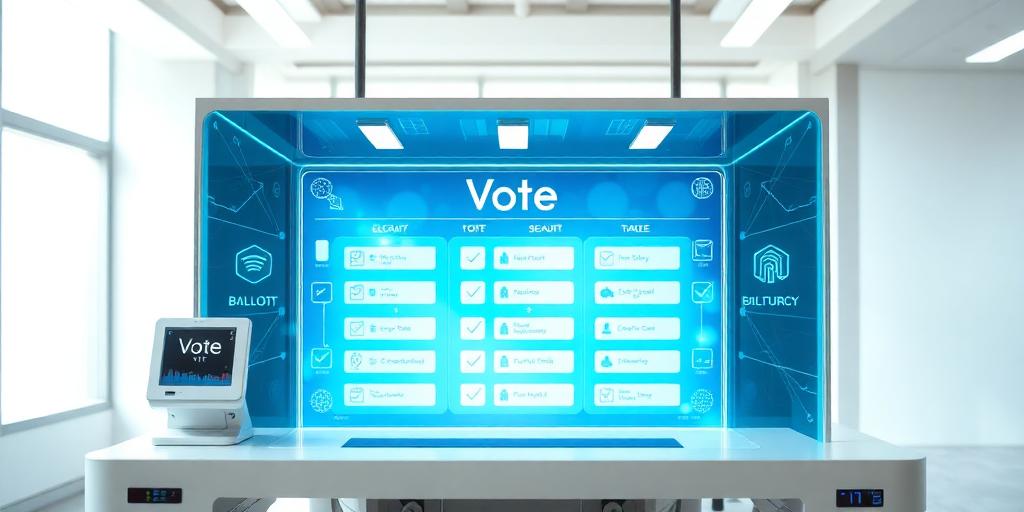Ensuring Fair and Secure Online Elections: A Comprehensive Guide
In an increasingly digital world, the concept of online elections has gained traction as a potential solution to enhance voter turnout and accessibility. However, the implementation of online voting systems introduces a unique set of challenges related to security, fairness, and transparency. This article delves into the critical aspects of ensuring fair and secure online elections, exploring the technologies, protocols, and best practices that can help safeguard the democratic process in the digital age.
Understanding the Landscape of Online Elections
Online elections, also known as internet voting, involve casting ballots electronically through a web-based platform or mobile application. This method offers several potential advantages, including:
Increased Voter Turnout: Online voting can make it easier for citizens to participate in elections, especially those who may face barriers such as mobility issues, geographical constraints, or time limitations. Enhanced Accessibility: Online platforms can be designed to accommodate voters with disabilities, offering features such as screen readers, voice recognition, and adjustable font sizes. Cost Savings: By reducing the need for physical polling locations, paper ballots, and manual tabulation, online elections can potentially lower the overall cost of conducting elections. However, the transition to online voting also presents significant challenges:
Security Risks: Online voting systems are vulnerable to cyberattacks, including hacking, malware, and distributed denial-of-service (DDoS) attacks, which can compromise the integrity of the voting process. Fraud and Manipulation: Online platforms can be susceptible to voter impersonation, ballot stuffing, and other forms of fraud, which can undermine the fairness of the election. Lack of Transparency: Without proper safeguards, online voting systems can be opaque and difficult to audit, raising concerns about the accuracy and reliability of the results. Voter Authentication and Identity Verification
One of the fundamental challenges of online elections is ensuring that only eligible voters are able to cast ballots. Robust voter authentication and identity verification mechanisms are essential to prevent voter impersonation and fraud. Some common approaches include:
Multi-Factor Authentication (MFA): Requiring voters to provide multiple forms of identification, such as a password, a one-time code sent to their mobile device, and biometric data, can significantly enhance security. Digital Identity Verification: Leveraging digital identity platforms and services to verify voters' identities against government databases or other trusted sources can help prevent fraudulent registrations and voting. Blockchain Technology: Utilizing blockchain technology to create a tamper-proof and transparent record of voter identities and ballots can enhance the integrity of the voting process. Secure Ballot Transmission and Storage
Once a voter has been authenticated, it is crucial to ensure that their ballot is transmitted and stored securely to prevent tampering or interception. Encryption, digital signatures, and secure communication protocols are essential components of a secure online voting system.
End-to-End Encryption: Encrypting ballots from the moment they are cast until they are decrypted for tabulation can prevent unauthorized access to the contents of the ballots. Digital Signatures: Using digital signatures to verify the authenticity and integrity of ballots can help ensure that they have not been altered or tampered with. Secure Storage: Storing ballots in a secure, tamper-proof database with strict access controls can prevent unauthorized access or modification. Auditing and Transparency Mechanisms
Transparency and auditability are crucial for building trust in online elections. Independent audits, verifiable paper trails, and open-source software can help ensure that the voting process is fair, accurate, and verifiable.
Independent Audits: Conducting regular audits of the online voting system by independent experts can help identify vulnerabilities and ensure that the system is functioning as intended. Verifiable Paper Trails: Generating a paper trail of each ballot, which can be used to verify the accuracy of the electronic results, can provide an additional layer of security and transparency. Open-Source Software: Using open-source software for the online voting system allows for public scrutiny and peer review, which can help identify and address potential security flaws.
Addressing Challenges and Future Directions
While online elections offer numerous potential benefits, they also present significant challenges that must be addressed to ensure fairness, security, and transparency. Ongoing research and development in areas such as cryptography, cybersecurity, and human-computer interaction are essential to improving the security and usability of online voting systems.
Furthermore, collaboration between election officials, technology experts, and cybersecurity professionals is crucial to developing and implementing best practices for online elections. By working together, we can create a more secure and accessible voting process that enhances democratic participation and safeguards the integrity of our elections.
The Future of Democracy
Online elections represent a significant opportunity to modernize the democratic process and make voting more accessible and convenient for citizens. However, it is essential to proceed with caution, carefully considering the security, fairness, and transparency implications of online voting systems. By implementing robust security measures, ensuring transparency and auditability, and fostering collaboration between stakeholders, we can harness the power of technology to create a more secure, accessible, and democratic future.









